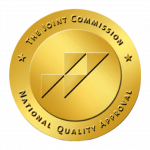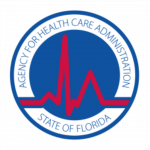Harm Reduction Center Privacy Policy
The Health Insurance Portability and Accountability Act (HIPAA)
HIPAA is the acronym for the Health Insurance Portability and Accountability Act of 1996. The Administrative Simplification provisions of HIPAA required the Department of Health and Human Services to establish national standards for electronic health care transactions and national identifiers for providers, health plans, and employers. It also addresses the security and privacy of health data. Adopting these standards will improve the efficiency and effectiveness of the nation’s health care system.
The documents listed below describe Harm Reduction Center LLC policies in regard to HIPAA. This notice describes how medical information about you may be used and disclosed and how you can get access to this information. Please review it carefully.
Nondiscrimination Policy
Limited English Proficiency
Harm Reduction Center LLC complies with applicable federal civil rights laws and does not discriminate, exclude or treat people differently on the basis of race, color, religion, sex, gender identity, gender expression, national origin, age, disabilities, sexual orientation, genetics, veteran status or any other basis prohibited by law. Harm Reduction Center LLC provides free aids and services to help people communicate effectively with us, such as:
- Qualified interpreters for sign language available with advance scheduling via video relay service (VRS), or in person if requested
- Qualified interpreters for languages other than English, available via video relay service (VRS), or in person if requested
- Written information in other formats upon request, not available on-demand
- Information written in other languages upon request, not available on-demand
Your Rights and Protections Against Surprise Medical Bills
When you get emergency care or are treated by an out-of-network provider at an in-network hospital or ambulatory surgical center, you are protected from balance billing. In these cases, you shouldn’t be charged more than your plan’s copayments, coinsurance and/or deductible.
What is “balance billing” (sometimes called “surprise billing”)?
When you see a doctor or other health care provider, you may owe certain out-of-pocket costs, like a copayment, coinsurance, or deductible. You may have additional costs or have to pay the entire bill if you see a provider or visit a healthcare facility that isn’t in your health plan’s network.
“Out-of-network” means providers and facilities that haven’t signed a contract with your health plan to provide services. Out-of-network providers may be allowed to bill you for the difference between what your plan pays and the full amount charged for a service. This is called “balance billing.” This amount is likely more than in-network costs for the same service and might not count toward your plan’s deductible or annual out-of-pocket limit.
“Surprise billing” is an unexpected balance bill. This can happen when you can’t control who is involved in your care—like when you have an emergency or when you schedule a visit at an in- network facility but are unexpectedly treated by an out-of-network provider. Surprise medical bills could cost thousands of dollars depending on the procedure or service.
You’re protected from balance billing for:
Emergency Services
If you have an emergency medical condition and get emergency services from an out-of- network provider or facility, the most they can bill you is your plan’s in-network cost-sharing amount (such as copayments, coinsurance, and deductibles). You can’t be billed for these emergency services. This includes services you may get after you’re in stable condition, unless you give written consent and give up your protections not to be balanced billed for these post-stabilization services.
Applicable State balance billing information may be found at the bottom of this notice.
Certain Services at an In-Network Hospital or Ambulatory Surgical Center
When you get services from an in-network hospital or ambulatory surgical center, certain providers may be out-of-network. In these cases, the most that providers can bill you is your plan’s in-network cost-sharing amount. This applies to emergency medicine, anesthesia, pathology, radiology, laboratory, neonatology, assistant surgeon, hospitalist, or intensivist services. These providers can’t balance bill you and may not ask you to give up your protections not to be balance billed.
If you get other types of services at these in-network facilities, out-of-network providers can’t balance bill you, unless you give written consent and give up your protections.
You’re never required to give up your protections from balance billing. You also aren’t required to get out-of-network care. You can choose a provider or facility in your plan’s network.
Applicable State balance billing information may be found at the bottom of this notice.
When Balance Billing Isn’t Allowed, You Also Have These Protections:
- You’re only responsible for paying your share of the cost (like the copayments, coinsurance, and deductible that you would pay if the provider or facility was in-network). Your health plan will pay any additional costs to out-of-network providers and facilities directly.
- Generally, your health plan must:
- Cover emergency services without requiring you to get approval for services in advance (also known as “prior authorization”).
- Cover emergency services by out-of-network providers.
- Base what you owe the provider or facility (cost-sharing) on what it would pay an in-network provider or facility and show that amount in your explanation of benefits.
- Count any amount you pay for emergency services or out-of-network services toward your in-network deductible and out-of-pocket limit.
If you think you’ve been wrongly billed, contact Centers for Medicare & Medicare Services (CMS)
Website: https://www.cms.gov/nosurprises/consumers
Phone: 1-800-985-3059
Visit Centers for Medicare & Medicaid Services No Surprises Act for more information about your rights under federal law
You have the right to receive a “Good Faith Estimate” explaining how much your medical care will cost
Under the law, health care providers need to give patients who don’t have insurance or who are not using insurance an estimate of the bill for medical items and services.
- You have the right to receive a Good Faith Estimate for the total expected cost of any non-emergency items or services. This includes related costs like medical tests, prescription drugs, equipment, and hospital fees.
- Make sure your health care provider gives you a Good Faith Estimate in writing at least 1 business day before your medical service or item. You can also ask your health care provider, and any other provider you choose, for a Good Faith Estimate before you schedule an item or service.
- If you receive a bill that is at least $400 more than your Good Faith Estimate, you can dispute the bill.
- Make sure to save a copy or picture of your Good Faith Estimate.
For questions or more information about your right to a Good Faith Estimate, visit www.cms.gov/nosurprises or call 1-800-985-3059.
Florida Surprise Billing
Florida law prohibits surprise billing in emergency situations. In addition, it protects consumers when they are at in-network hospitals for non-emergency services, but are unknowingly treated by out-of-network physicians for covered services. Hospitals must post on their websites the health plans with whom they are in-network, and put consumers on notice that patients may be seen by out of network practitioners.
For more information on Florida’s consumer balance billing protections, please contact the Agency for Health Care Administration, at 1-888-419-3456 / 800-955-8771 Florida Relay Service (TDD number). Additional information for consumers is available on the Florida Health Care Complaint Portal (flhealthcomplaint.gov).




